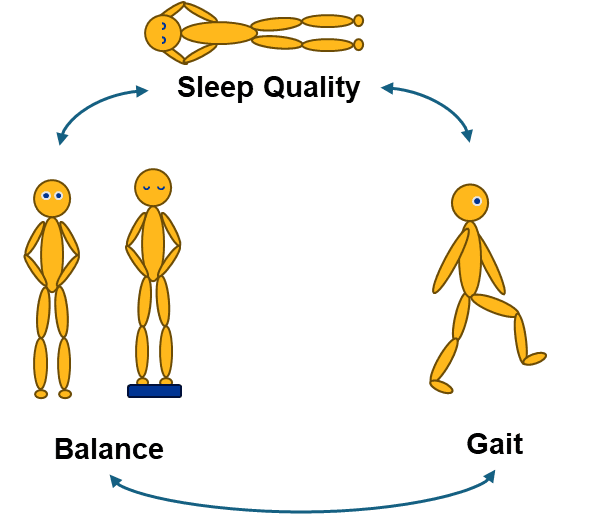

Sensorimotor Function in Clinical Populations
Vision, Vestibular & Mobility
Vision, Vestibular & Mobility
Sleep, Balance, and Falls in Glaucoma
Falls are a major health risk for adults with glaucoma. While glaucoma-related changes in vision certainly contribute to falls, other well established risk factors for falls occurring at a greater rate in glaucoma than in older adults need to be considered. Poor sleep, an example of such risk factors, is well documented in glaucoma. In older adults without glaucoma, poor sleep negatively impacts falls risk and postural control, and causes other adverse health outcomes. Yet, we do not know if poor sleep function and disruption in sleep architecture associated with glaucoma, i.e. beyond aging-related symptoms, contribute to the increased prevalence of falls and reduced postural control in glaucoma. The overarching goal of the proposed project, funded in part by the University of Pittsburgh Pepper Center, is to understand the interplay between sleep and postural control in glaucoma.
People



